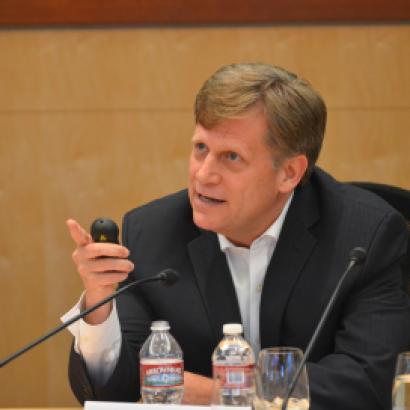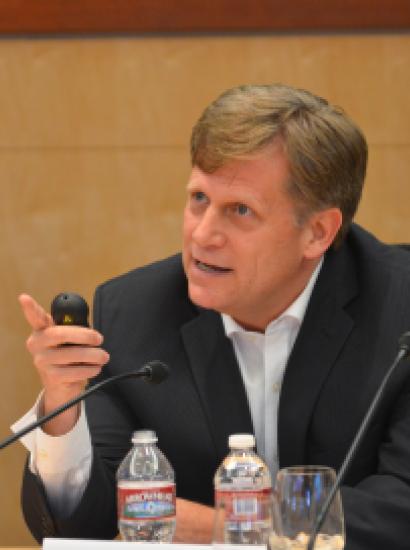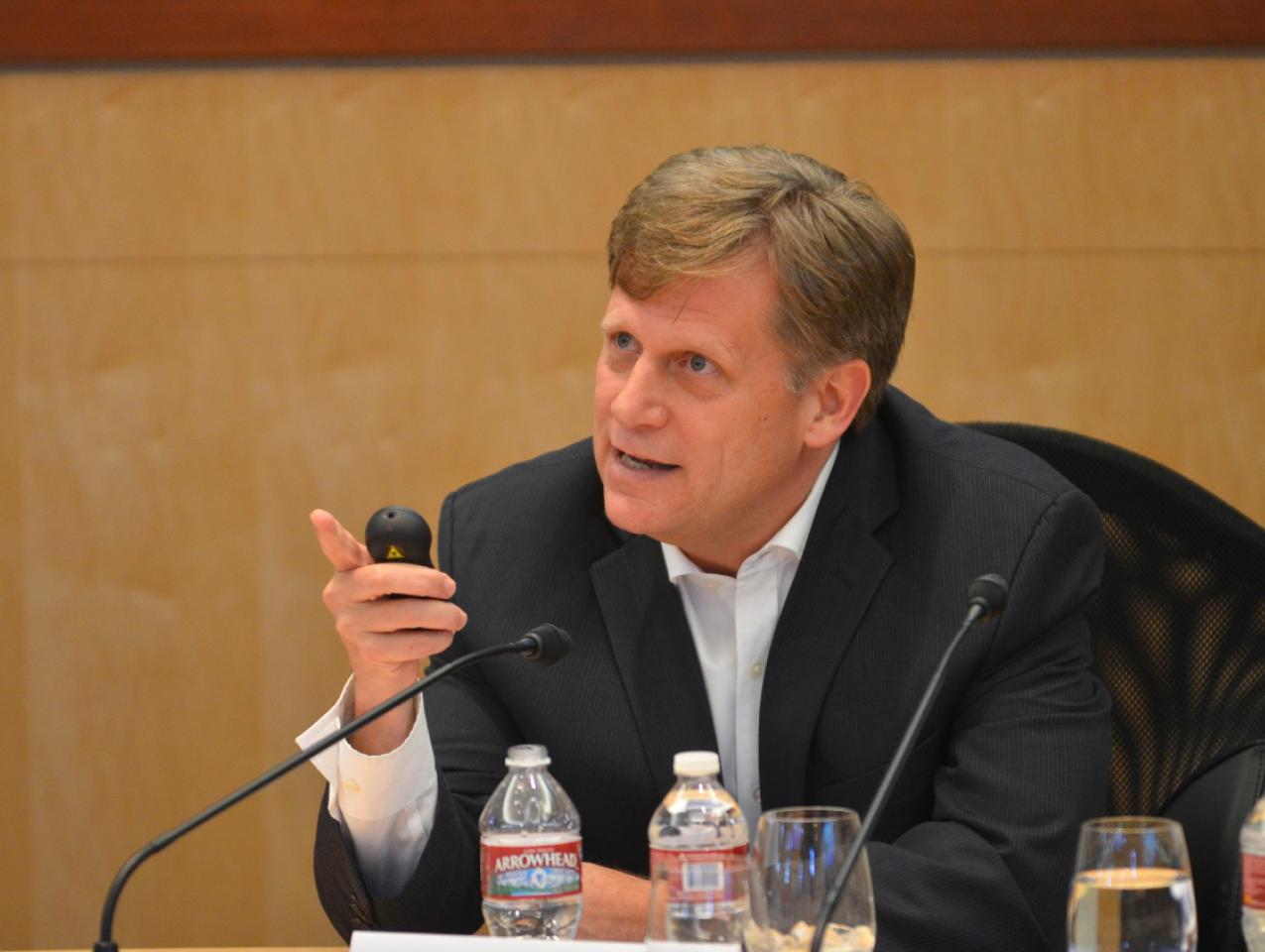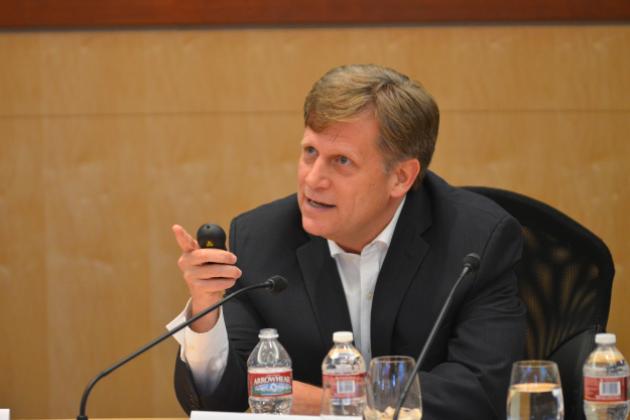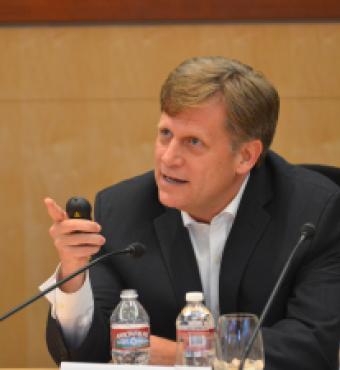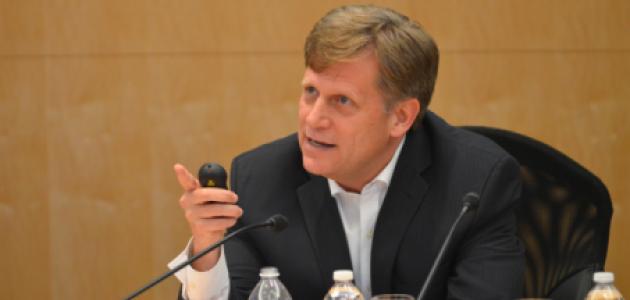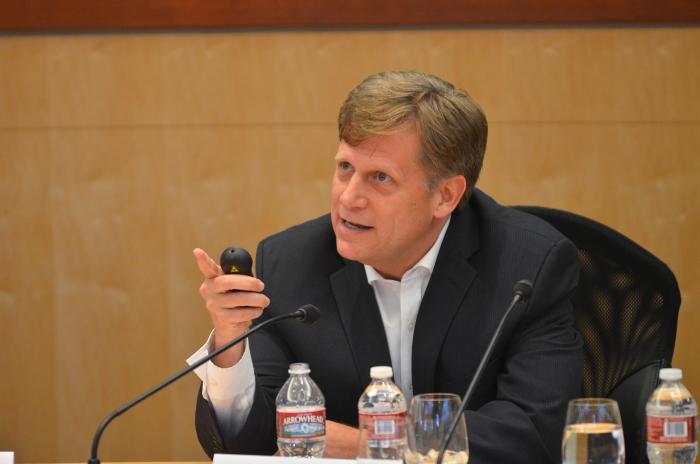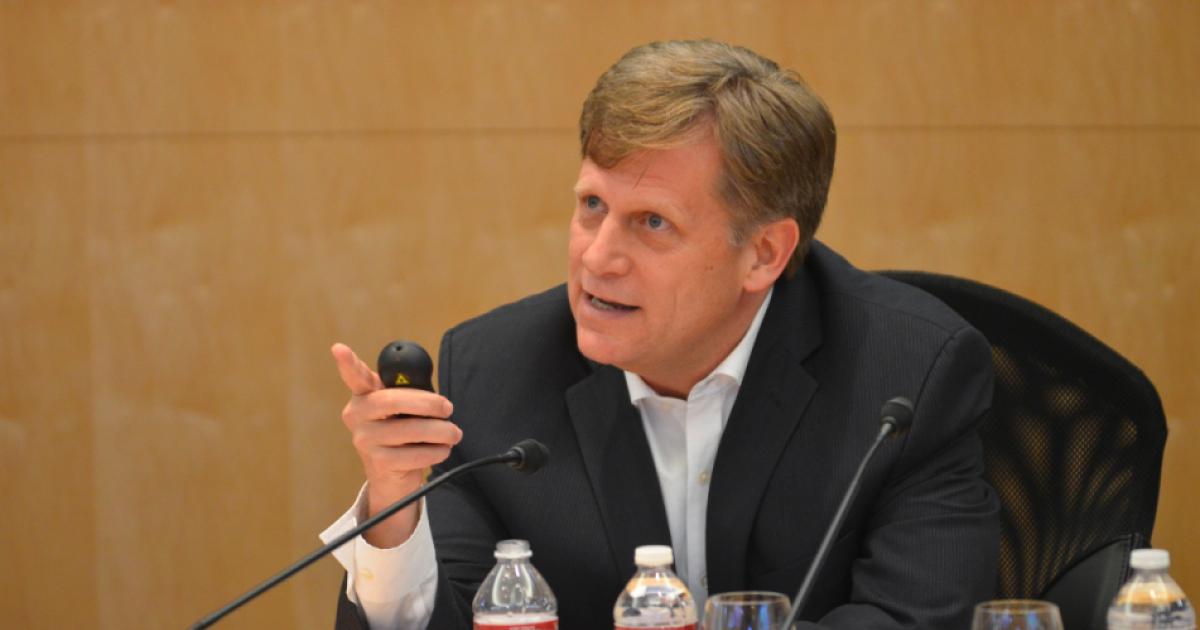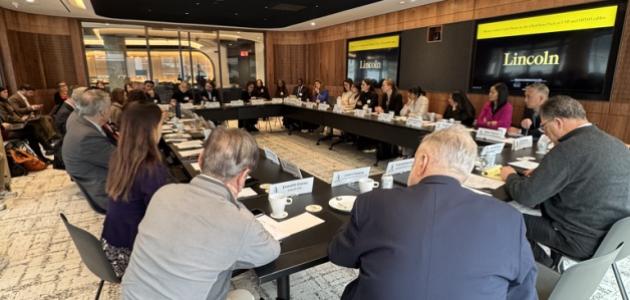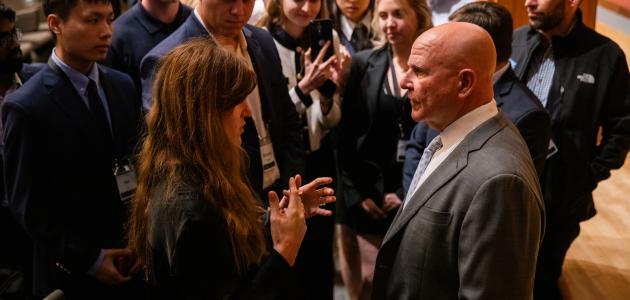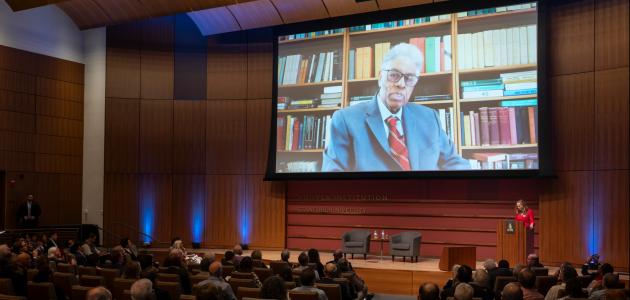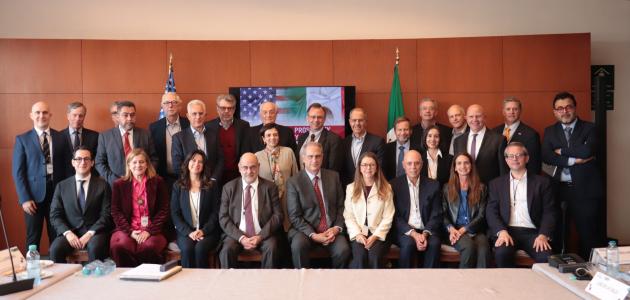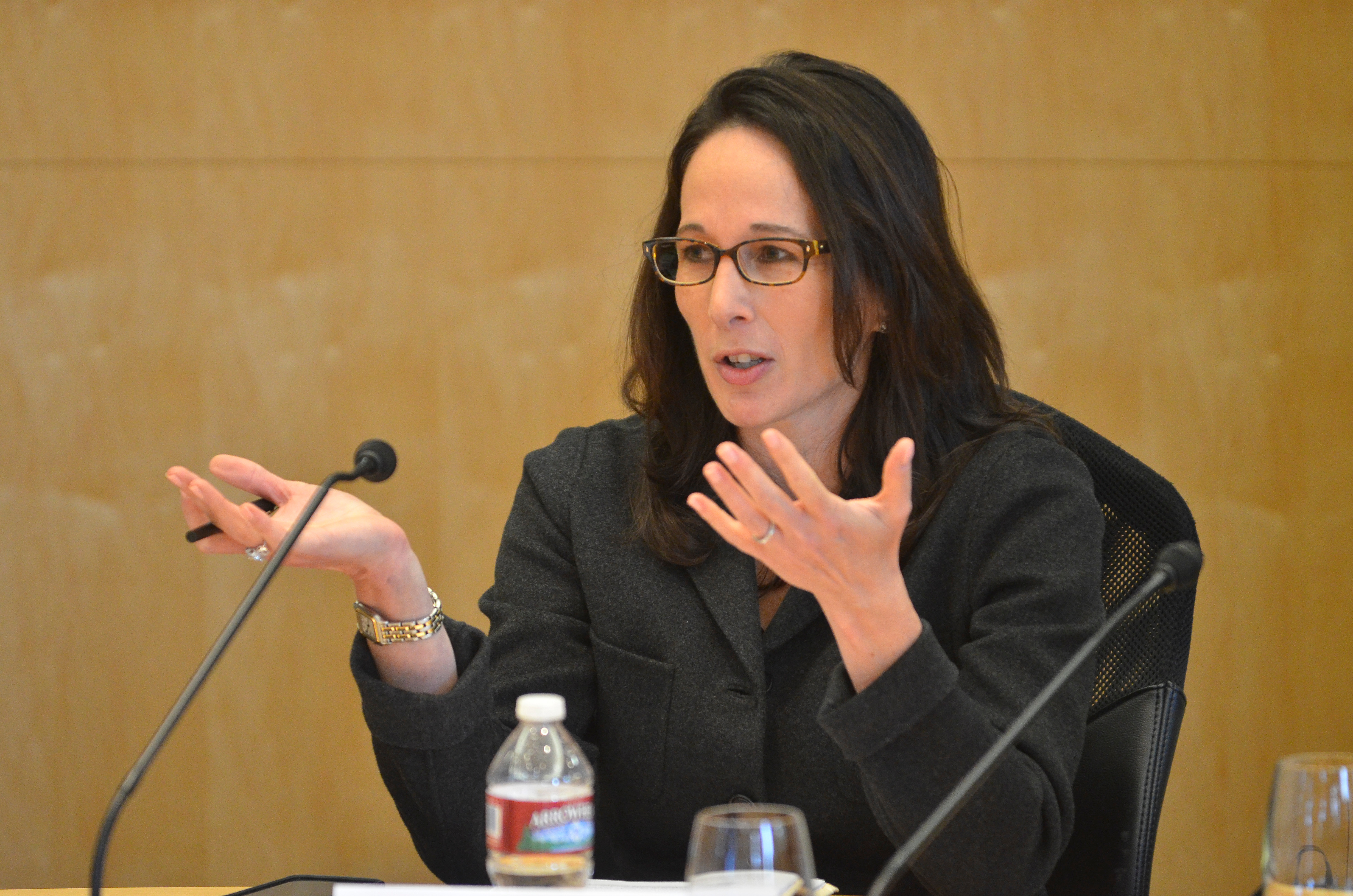
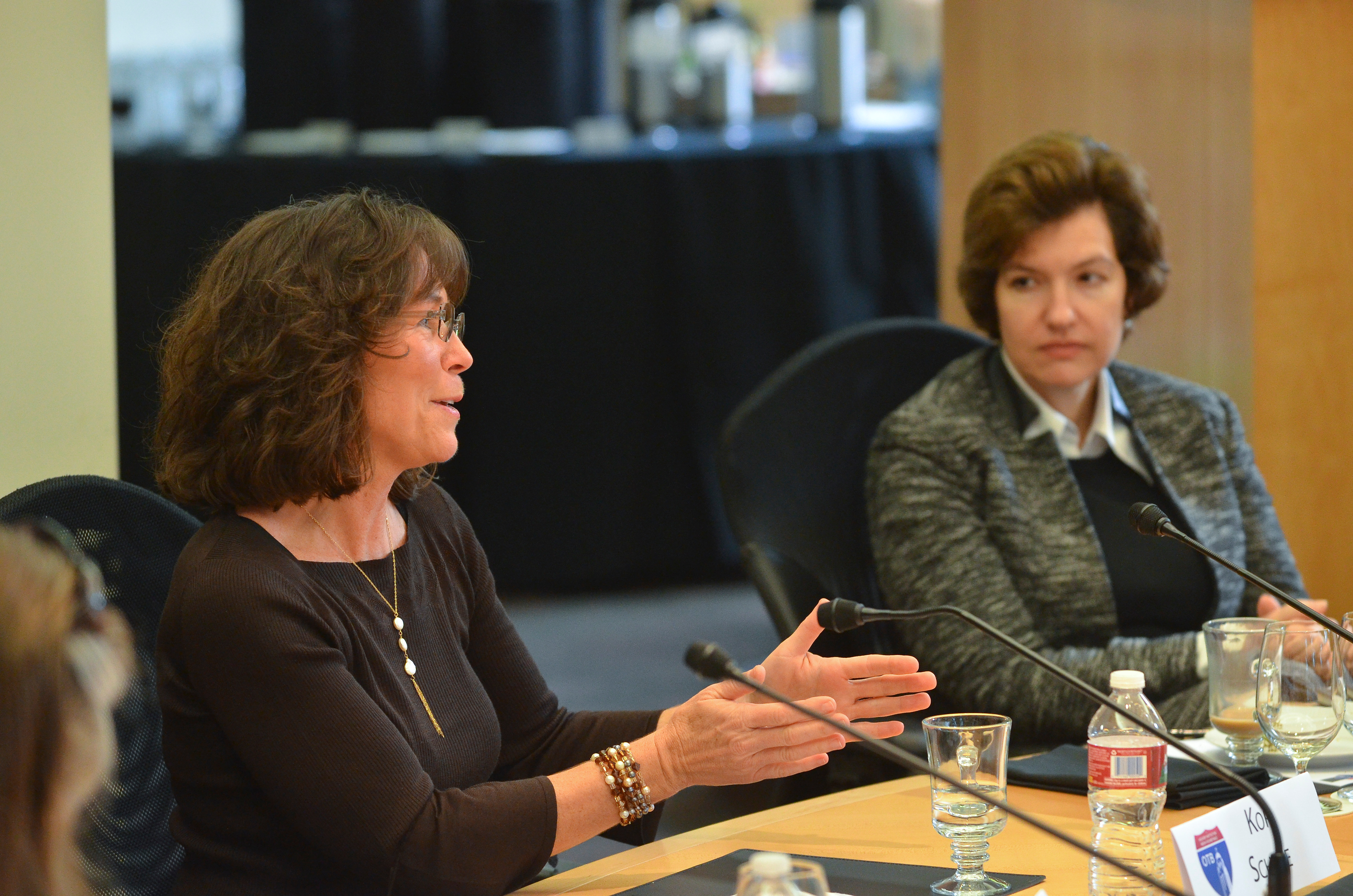
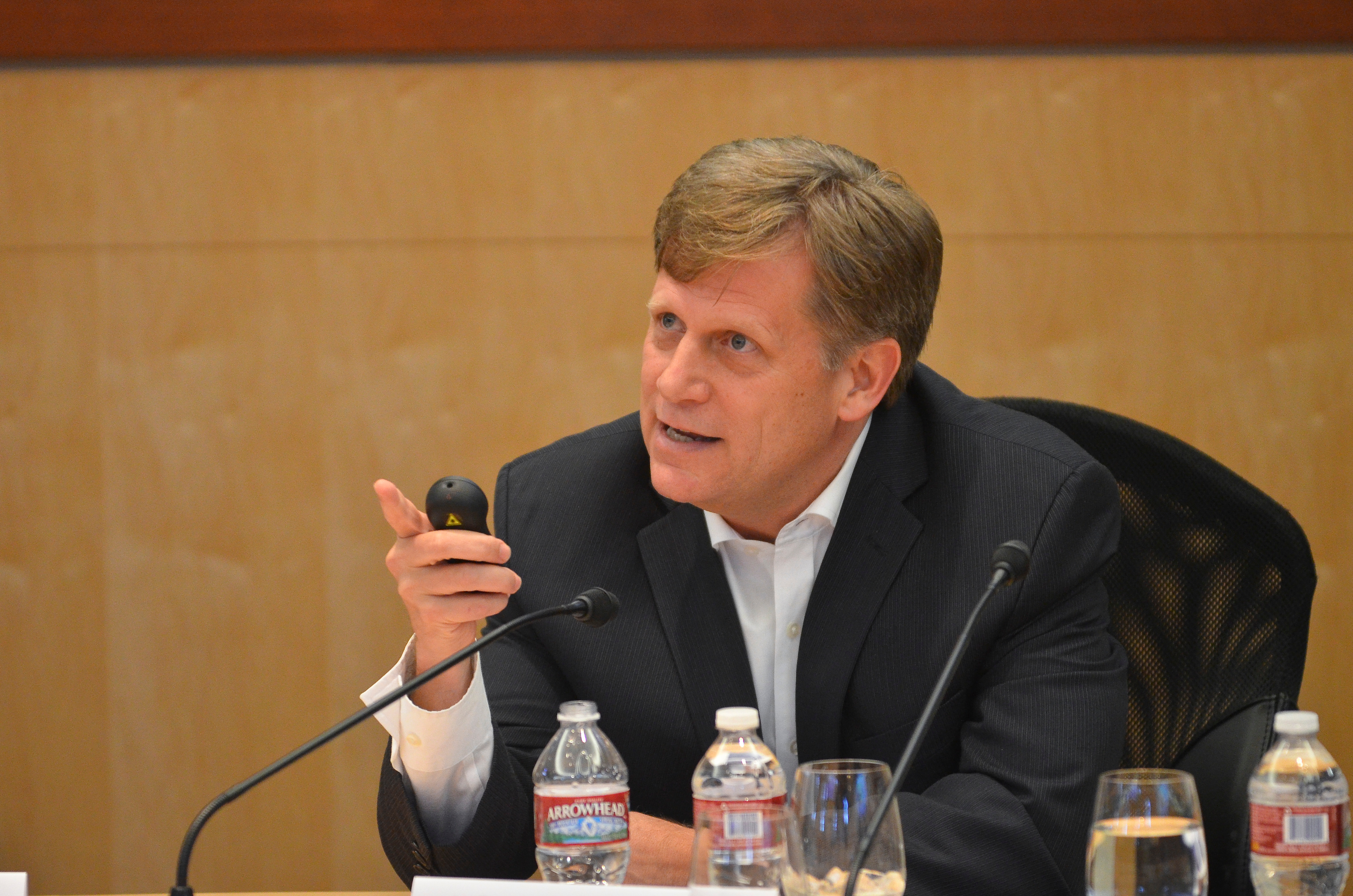
How does cybsersecurity fit into the national security landscape? How can the president of the United States effectively utilize the credible threat of force? What is the escalatory potential for the crisis in Ukraine? Those were some of the questions under intense discussion at the Foreign Policy Media Roundtable, hosted by the Hoover Institution on Monday, February 9.
The roundtable, whose participants included representatives of the Wall Street Journal, the New York Times, Politico, and CNN, encompassed many aspects of contemporary foreign policy challenges, from global economic policy to cybersecurity to leadership, featuring presentations from Distinguished Fellow George Shultz; Senior Fellows Condoleezza Rice, Michael McFaul, and Amy Zegart; Research Fellow Kori Schake; and Visiting Fellow Kevin Warsh.
One major theme of the day was the role of the US president. It was unanimous that the president must manage the hegemonic power of the United States; what that entails, however, was seen differently by the fellows. Kori Schake emphasized the importance of the president’s explaining his foreign policy strategy to Americans and the world at large, arguing that, although the Obama administration has done a good job of “placing the current threats we are facing in context,” it is “failing at explaining” its foreign policies. Others, including Condoleezza Rice and George Shultz, called for presidential leadership in making big decisions, such as arming Ukrainian fighters, doing nothing, or strong-arming other big powers into cooperation.
The importance of leadership and allies was also discussed, with conversation starters sparked by Schake. She brought up ways the United States could be a better ally, such as finding the appropriate timing for supporting allies, knowing when to criticize them, and knowing when to pursue foreign policy objectives alone–such as sanctions against Russia that are harsher than our European allies can afford–as well as rebalancing relationships. “Our allies are some of the most powerful countries in the world,” said Schake, “and we should be giving them the confidence that they can defend themselves.” She also pointed out that the Obama administration needed to realize the opportunity costs of inaction, saying “the strategy [of inaction] suggests that strategic patience is a virtue . . . but what strategic patience actually says is the cost of inaction gets higher over time and someone else pays it.” She also critiqued the concept of “leading from behind,” commenting that, “from my experience, when we step back, others step back further.”
Participants were intrigued by Amy Zegart’s presentation on cybersecurity. She outlined several ways in which cyber threats are different than conventional threats, including the large attack surface area with jumbled safe and unsafe zones, different response dynamics with short lead-ups and long response times, and ignorance of attacks that have already happened. Most importantly, Zegart emphasized, was that combating cyber threats requires a multilateral approach, saying “in cyber, the whole of government isn’t enough, you need whole of society approaches.” The discussion included thoughts on how businesses such as Sony or Anthem Blue Cross could protect themselves from cyber attacks. Zegart acknowledged the ambiguities and complexities but pointed out that “just because you’re attacked in cyber doesn’t mean you retaliate in cyber.” What about preemptive attacks by governments or businesses? “Is there even deterrence on the Internet? I’m not sure that there is,” remarked Zegart, “I think there’s some muddled thinking about how we use deterrence . . . ambiguity is oftentimes not your friend.”
Throughout the day, discussions casually touched on the question of arming rebels in Ukraine. With the final presentation by Michael McFaul on US foreign policy in Russia, those questions erupted into a spirited debate. Is Ukraine a national security concern for the United States? How far should we go to support civil societies? “I think we should have a grand comprehensive strategy for confronting Putin’s Russia . . . not just whether we should arm the Ukrainians or not,” argued McFaul. “We should have no illusions that this will solve the problem . . . my hunch is this will last a long time.” He also pointed out that it was a serious decision, especially since the Ukrainians themselves would bear most of the cost. Because of the gravitas, the administration should have space to make the decision without every move of the deliberation being broadcast to the public because that conveys indecisiveness and undercuts the credibility of the final decision. “We are losing this ideological struggle, big time,” said McFaul. That was perhaps not the most uplifting way to end the day but definitely a thought-provoking one.







